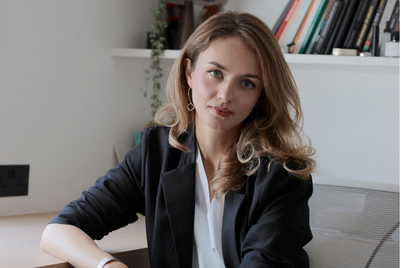.png&h=570&w=855&q=100&v=20250320&c=1)
MasterChef Australia is in the hot seat after the climate advocacy group Comms Declare lodged a formal complaint with the Australian Competition and Consumer Commission (ACCC). The group challenges the show’s assertion of using ‘renewable gas,’ a claim prominently featured by host Andy Allen in the fourth episode of season 16. Comms Declare contests this statement, accusing the show of greenwashing and misleading the audience.
The root of the dispute lies in MasterChef’s partnership with the Australian Gas Network (AGN), which allows for the use of biomethane and hydrogen in its cooking contests. This move has drawn criticism from environmentalists, conservationists, and the climate communications group Comms Declare. They accuse the show of greenwashing, contending that these gases are not viable substitutes for methane and are at odds with the shifting public opinion on gas, especially in Melbourne, where MasterChef is filmed.
Biomethane, sourced from organic waste, mirrors fossil gas in composition but is touted as more environmentally friendly. It recycles existing biosphere carbon instead of releasing new carbon from underground deposits, thus reducing the overall carbon footprint.
However, MasterChef employs hydrogen labelled ‘grey hydrogen,’ that is produced through steam methane reforming—a process that emits pollutants. While the MasterChef Australia website claims these emissions will be counterbalanced by purchasing carbon credits, it also notes plans to switch to emission-free ‘renewable hydrogen’ in upcoming seasons.
Belinda Noble, Comms Declare’s founder, has publicly denounced the show, saying that the portrayal of the gas used as eco-friendly is highly deceptive.
“The biomethane and grey hydrogen powering the MasterChef kitchen are neither renewable nor low-emission, lacking commercial viability and accessibility in typical Australian households,” Noble stated. She urges the show’s producers to sever ties with their ‘polluting sponsor’ and transition to induction cooking, following the lead of international MasterChef franchises in Spain, UK, Denmark and Italy.
Dr. Ben Ewald of Doctors for the Environment Australia has also voiced concerns, highlighting a 42% surge in child asthma risk linked with gas stove usage—a health hazard echoed by MasterChef’s use of gas cooktops. Despite these alarming health warnings, the show’s promotions continue to endorse ‘renewable gas’ as a pivotal element of Australia’s energy shift.
This stance is in contrast with the Victorian government’s prohibition on gas connections in new homes, citing climate and health reasons. Critics like Joy Toose of Environment Victoria have also voiced disapproval, pointing out that biomethane and hydrogen fail to curtail carbon dioxide emissions and lack economic competitiveness against electricity or traditional fossil fuel gas.
“Pretending we can use hydrogen or biomethane in our gas network is an impractical fantasy. Switching to efficient electric heating, cooking, and hot water systems is not only better for our health and for the climate, they’re also more affordable to run," Joy Toose, climate campaign manager for Environment Victoria added.
He continued: “It’s no coincidence that as the Victorian government looks to give more households access to electric appliances and phase out gas, the gas network owners are paying MasterChef big bucks to create confusion about the need to electrify. It’s a cynical attempt to stall progress to preserve their massive profits.”
The ACCC’s ongoing investigation into these allegations could have a profound impact on MasterChef’s reputation, a fact that is not lost on the show's fanbase. The potential implications of this investigation on the broader dialogue on sustainable energy in Australia’s cultural domain are also being closely watched by the environmentalist community and health advocates.
Earlier this year, Comms Declare targeted Shell Energy, against whom they previously lodged an ACCC complaint. Noble called them an “Olympic-level gaslighter.”
“Shell heavily promoted its net zero target in Australia, while internal emails revealed it was ‘not a Shell business plan’,” Noble alleged. “These greenwashing claims are being investigated by the corporate regulator.
“The energy retailing side of the business is the friendly face of an international corporation betting against the energy transition and a safe future for our children,” she said.



.jpg&h=334&w=500&q=100&v=20250320&c=1)


.jpg&h=334&w=500&q=100&v=20250320&c=1)




+(900+x+600+px)+(3).png&h=334&w=500&q=100&v=20250320&c=1)

.png&h=268&w=401&q=100&v=20250320&c=1)



.jpg&h=268&w=401&q=100&v=20250320&c=1)

